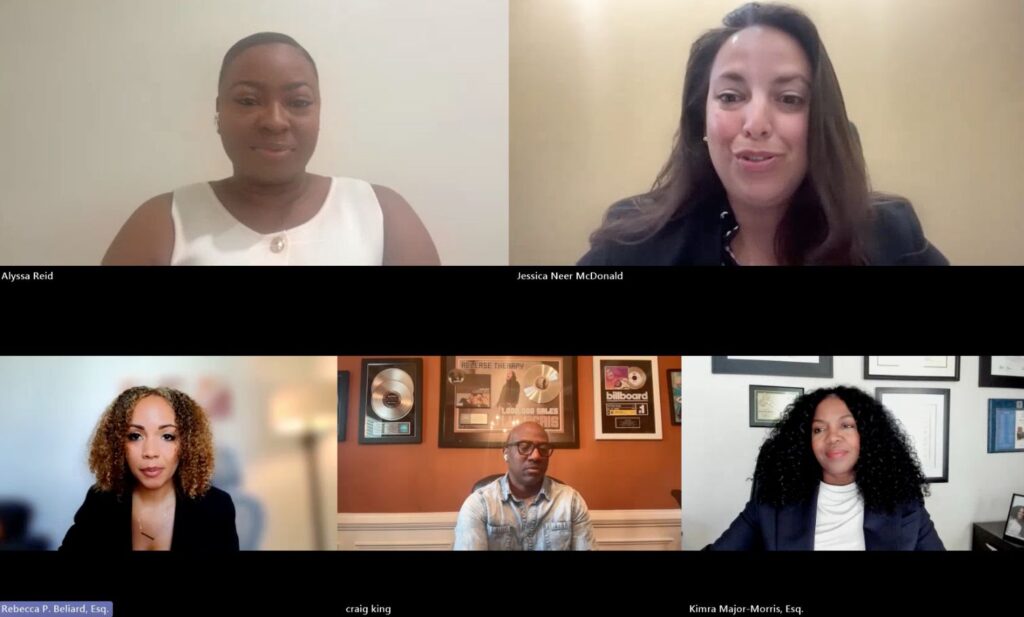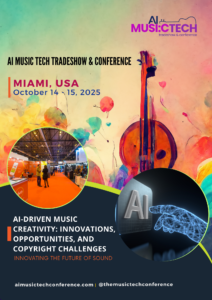
AI, Creativity, and Copyright: Insights from the World IP Day Panel on the Future of Music
In celebration of World Intellectual Property Day, the AI Music Tech Tradeshow and Conference, in collaboration with the World Intellectual Property Organization (WIPO) and RPB Law Firm, hosted a timely and thought-provoking panel discussion exploring the intersection of copyright, artificial intelligence, and the future of music. The event brought together legal professionals, musicians, developers, and creators to examine how evolving intellectual property frameworks respond to emerging technologies’ creative and legal challenges.
The panel, moderated by Alyssa Reid, Esq., featured a powerhouse lineup of attorneys: Jessica Near-McDonald, founder of Near-McDonald PLLC; Kimra Major-Morris, founder of Major-Morris Law, a nationally recognized and AV-rated intellectual property expert; and Rebecca P. Beliard, Founder and Managing Partner of RPB Law, PLLC, and former legal counsel at Amazon Music. Craig King, a veteran musician, producer, and co-founder of Rap Plug Academy, added a critical industry perspective. Together, the panelists addressed key questions surrounding copyright in the digital age: What constitutes authorship in an AI-assisted world? Who owns creative outputs? And how can today’s artists proactively protect their work?
Attorney Kimra Major-Morris emphasized the importance of early and proactive legal protection, encouraging creators—especially musicians experimenting with AI—to register their works promptly. She dispelled the common myth that online publication ensures protection, warning, “You don’t truly own it until you register it.” For Major-Morris, copyright isn’t just a legal safeguard—it’s a strategic business asset. In tandem, Jessica Near-McDonald offered a perspective grounded in legal risk management. She highlighted the importance of understanding the terms of service, licensing structures, and data origins when using generative AI tools like Suno or Udio, stating, “AI doesn’t absolve you of responsibility.” Near-McDonald also addressed legal gray areas around AI-authored works, clarifying that only human authorship is currently eligible for copyright protection under U.S. law. She urged artists to document their creative input when working with AI, especially when merging human and machine-generated content.
As the discussion progressed, the panel reinforced that copyright registration is a legal necessity and a foundation for building sustainable creative careers. “Your intellectual property is your business,” Beliard asserted. The conversation also addressed practical examples, such as a track nearly entangled in a rights dispute due to a misunderstood “open source” guitar loop. This example, shared by Craig King, underscored the legal landmines creators can face if they fail to verify content licenses. The panel further explored the reintroduction of the No Fakes Act, aimed at protecting voice and likeness rights in the digital age, as well as broader implications for public domain use and fair use boundaries.
In closing, all panelists emphasized that while AI is a powerful creative tool, it is not a substitute for human ingenuity or legal awareness. Musicians and creators must use it strategically—without losing sight of authorship, ownership, and value. As Beliard concluded: “Bet on yourself. You are the secret sauce.” The future of music will belong to those who embrace innovation while protecting their creative identity and rights.

